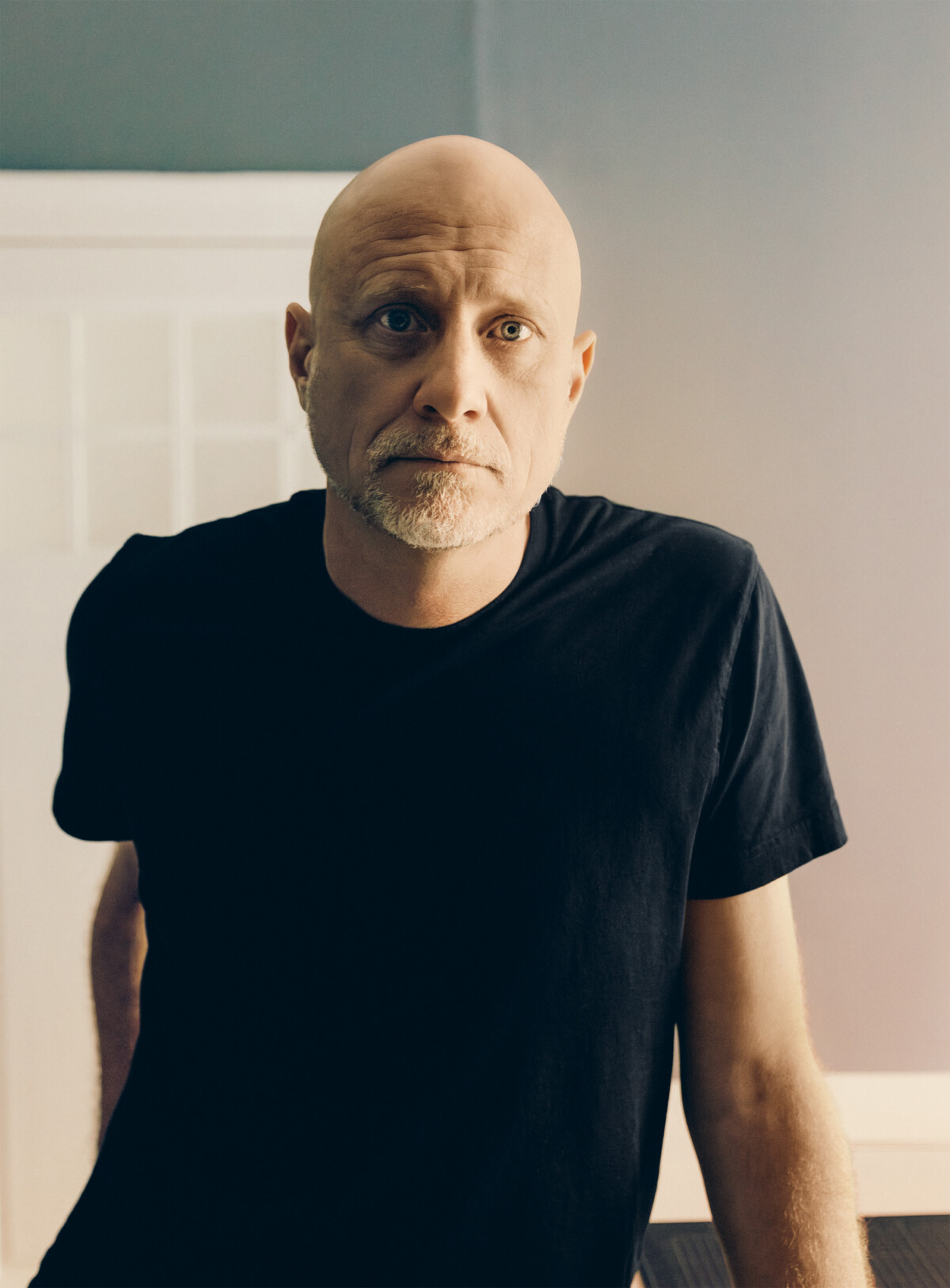Each year, the Peace and Conflict Studies program invites a world-renowned scholar to give the Peter C. Schaehrer '65 Memorial Lecture on topics addressing some of the most important issues of peace and conflict facing the world today. The Schaehrer Initiative and Memorial Lecture Series was established by classmates of Pete Schaehrer ’65 — a career educator and a champion of civil rights.

2026 Peter C. Memorial Lecture — Kathleen Belew
Thursday September 24, 2026, 7 p.m. in Love Auditorium
Colgate's Peace and Conflict Studies program is proud to announce that the 17th annual Peter C. Schaehrer Memorial Lecture in Peace & Conflict Studies will be given by historian Kathleen Belew of Northwestern University. Prof. Belew received her PhD from Yale University and is a leading expert on radical right-wing extremism. A frequent media commentator, she provides vital historical context to our current political climate. She is the author of the breakthrough book Bring the War Home: The White Power Movement and Paramilitary America, and her upcoming work uses her home state of Colorado to explore the origins of today’s polarized politics. Kathleen will speak at 7 p.m. in Love Auditorium on September 24, followed by a reception outside the auditorium for all attendees. Kathleen will also participate in an academic seminar with faculty, students, and alumni the following morning.
Previous Lectures
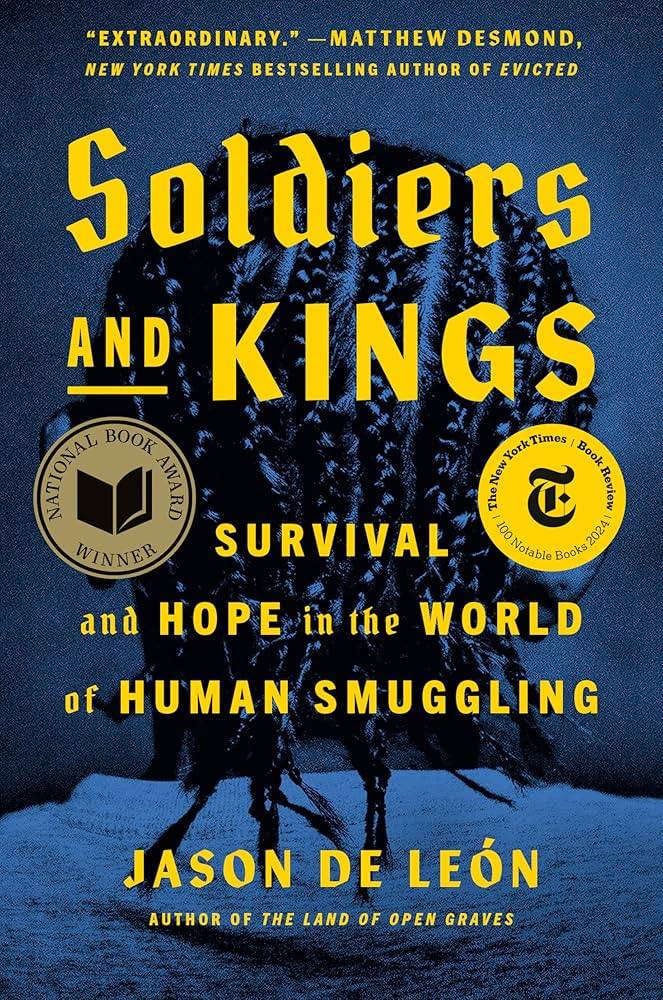
2025 Peter C. Memorial Lecture — Jason De León
September 25, 7 p.m. in Love Auditorium
The 2025 annual Peter C. Schaehrer Memorial Lecture in Peace & Conflict Studies was given by anthropologist and archeologist Jason De León of UCLA. Jason is the recipient of a MacArthur "Genius" Fellowship. His book Soldiers and Kings: Survival and Hope in the World of Human Smuggling won the 2024 National Book Award for Nonfiction. Jason spoke at 7 p.m. in Love Auditorium. Click here to watch the 2025 Schaehrer Memorial Lecture
Trevor Paglen, "You've Just Been f*cked by Psyops: How Mind Control, UFOs, Magic, and Electronic Warfare Explain the Future of AI and Media
With AI-generated content, social media influence operations, micro-targeted advertising, and ubiquitous surveillance becoming the norm, we have entered an era of PSYOP capitalism. This era is characterized by fabricated hallucinations and manipulations intended to influence our senses, perceptions, and beliefs. This talk delves into the history of secret military, intelligence, and technology programs that have paved the way for our increasingly strange present.
The 2024 annual Peter C. Schaehrer Memorial Lecture was given by visual artist and geographer Trevor Paglen, recipient of a MacArthur "Genius" Fellowship. Trevor spoke at 7 p.m. in Golden Auditorium on September 26. A seminar with faculty, students, staff, and alumni was held the following day in the newly inaugurated Berstein Hall's Experimental Exhibition and Performance Space.
Laleh Khalili, "Infrastructures of War and Trade in the Middle East"
Thursday, September 28, 2023
7 - 8:30 p.m.
Little Hall, Golden Auditorium - Room 105
The 2023 Peter C. Schaehrer Memorial Lecture in Peace and Conflict Studies was given by Laleh Khalili (University of Exeter), author of Sinews of War and Trade: Shipping and Capitalism in the Arabian Peninsula (Verso, 2021). Watch the lecture below:
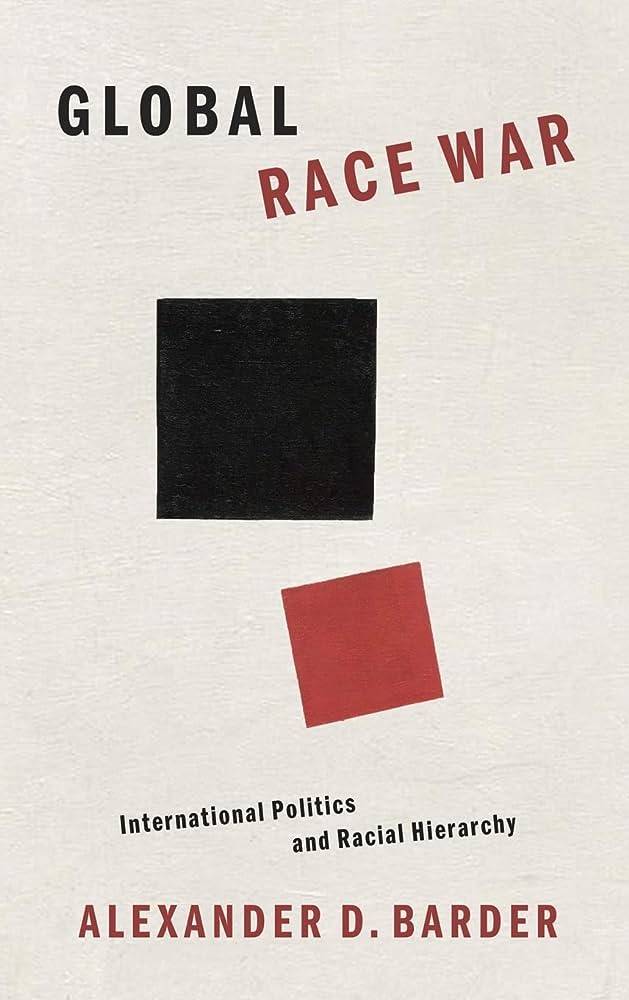
Alexander Barder, "Global Race War"
Alexander Barder is an Associate Professor of Politics and International Relations and Graduate Program Director for International Relations at the Florida International University.
Barder discussed his latest book, Global Race War: International Politics and Racial Hierarchy, an exploration of the formation of a global racial worldview that took hold in the early part of the 19th century. Barder will discuss how race and racial violence were crucial to the formation of the global order over a period of two centuries; how racial violence and warfare proliferated in defense of racial hierarchy in moments when such hierarchy was perceived to be in crisis; and how the racial order continued after the second world war through the racialization of cultural and civilizational attributes. Barder will draw upon salient moments in 19th century and 20th century political history, from the Haitian Revolution, the Armenian Genocide of 1915, the Nazi Holocaust, the Global War on Terror and more contemporary fears of "racial replacement" in Europe and the US. Contemporary instances of white supremacist violence — from Norway to New Zealand to the United States — should thus be understood as a part of a larger historical legacy of a historical racial worldview that needs to be recognized and combated.
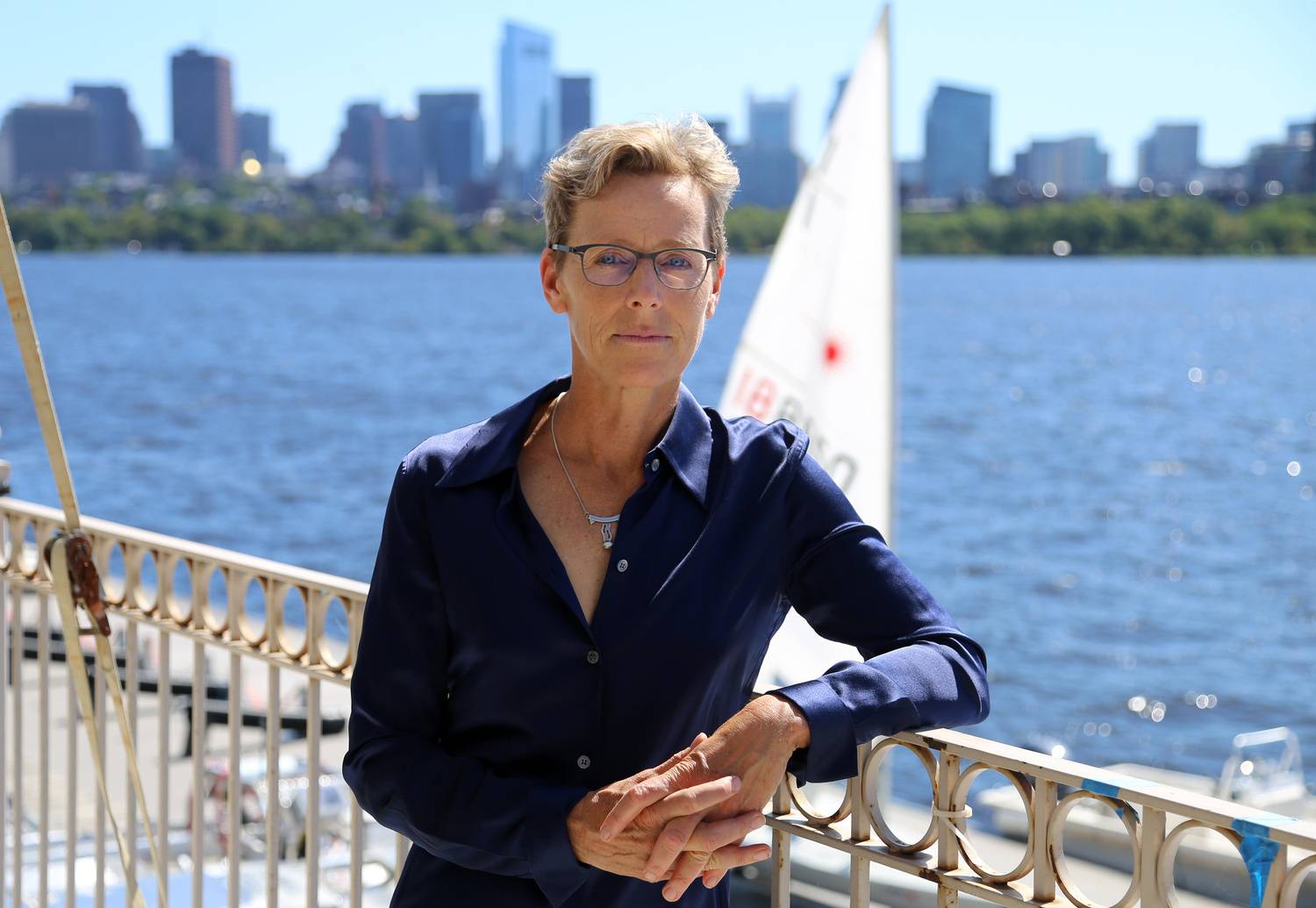
Kate Brown, "The Great Chernobyl Acceleration: Environment and Health in the Nuclear Age"
Kate Brown is the Thomas M. Siebel Distinguished Professor in the History of Science at the Massachusetts Institute of Technology.
What do we know about the Chernobyl disaster? Working through Soviet archives, historian Kate Brown encountered many contradictory accounts of the catastrophe and its effects. Local doctors reported “a public health disaster” among people exposed to Chernobyl fallout. International experts refuted that claim. Realizing that although people and archives lie, trees probably don’t, Brown turned to scientists—biologists, foresters, physicians, and physicists—to help her understand the ecology of the greater Chernobyl territories. She learned that contaminants saturated local eco-systems long before the Chernobyl accident and continued long after the 1986 event. Brown argues that to call Chernobyl an “accident” is to sweep aside the decades of radiation exposure that rained down on the globe during the period of nuclear testing. Instead of a one-off accident, Brown argues that Chernobyl was a point of acceleration on a timeline of radioactive contamination that continues to this day.
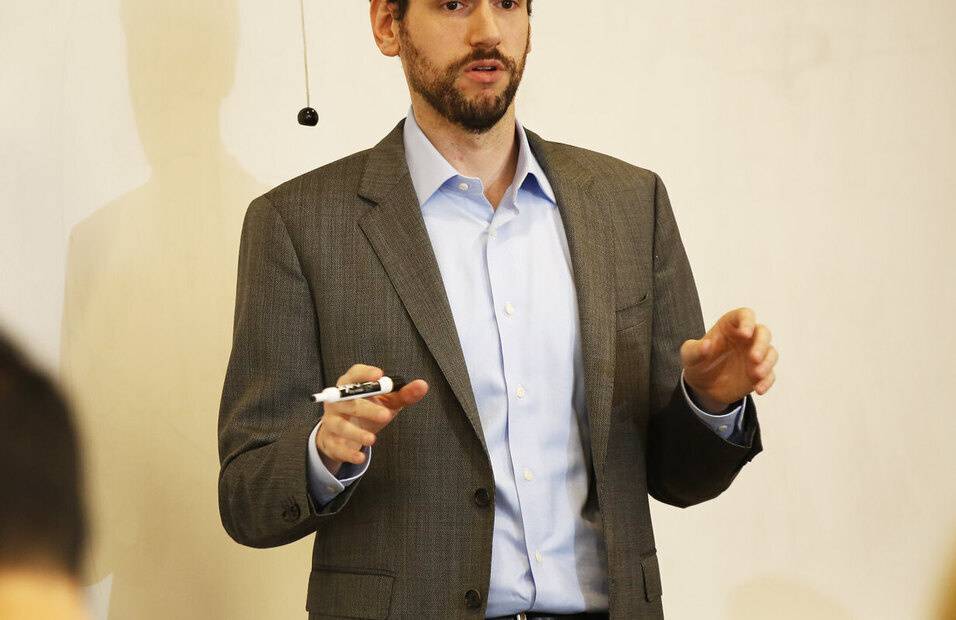
Benjamin Meiches, "The Politics of Genocide"
Peace and Conflict Studies' Peter C. Schaehrer Memorial lecture with speaker Dr. Benjamin Meiches, University of Washington Tacoma Department of Politics, Philosophy and Public Affairs, author of The Politics of Annihilation: A Genealogy of Genocide.
From Rwanda, to Darfur, to Myanmar, genocide is one of the most significant, stilling problems in contemporary global politics. However, the concept of genocide, which describes these events, was invented barely seven decades ago. How did this term, genocide, go from little more than an academic footnote to one of the most important terms for characterizing mass violence? Far from a story of moral ascension, the rise of the concept of genocide has been informed by relations of power and racism with lasting implications for modern humanitarianism, atrocity prevention, and politics writ large.
Steve Coll: "Grand Delusions: Understanding America's Failed Counter-Insurgency in Afghanistan"
Dean & Henry R. Luce Professor of Journalism at Columbia University
Antoine Bousquet: "The Disappearance of the Battlefield and the ‘End of War’"
Senior Lecturer in International Relations at Birkbeck University of London
Séverene Autesserre: "Peaceland: Conflict Resolution and the Everyday Politics of International Intervention"
Associate Professor of Political Science, Barnard College; Author of Peaceland
Paul Amar: "Security Revolutions and Gender Justice"
Professor and Director of Graduate Studies, University of California, Santa Barbara
Fredrik Logevall: "The Meaning of the Vietnam War"
Anbinder Professor of History, Vice Provost for International Affairs, and Director of the Einaudi Center for International Studies, Cornell University
Dr. Fredrik Logevall is the author of Embers of War: The Fall of an Empire and the Making of America's Vietnam which received the 2013 Pulitzer Prize for History and the 2013 Francis Parkman Prize from the Society of American Historians, among other awards.
Erica Chenoweth: "Why Civil Resistance Works"
Associate Professor of Political Science, University of Denver
Professor Erica Chenoweth is co-winner of the 2013 Grawemeyer Award for Ideas Improving World Order, for her 2011 book co-authored with Maria Stephan Why Civil Resistance Works: The Strategic Logic of Non-Violent Conflict (Columbia University Press). She is assistant professor at the University of Denver’s Josef Korbel School of International Studies and directs that school’s Program on Terrorism and Insurgency Research. She has been a fellow at Harvard University’s Kennedy School of Government, Stanford University’s Center for International Security and Cooperation, and the University of California-Berkeley’s Institute of International Studies.
Joy Gordon: "The Invisible War"
Professor of Philosophy, Fairfield University
Professor Joy Gordon is a professor of philosophy at Fairfield University. She has a PhD in philosophy from Yale University, and a JD from Boston University School of Law. She has published articles in Le Monde Diplmatique, Global Governance, Harper's, The Atlantic, Ethics and International Affairs, Arab Studies Quarterly, and the Fletcher Forum of World Affairs, in addition to her book, Invisible War: The United States and the Iraq Sanctions (Harvard University Press, 2010).
Carolyn Nordstrom: "The Global Shadow of Tomorrow’s War"
Professor of Anthropology, University of Notre Dame
Professor Carolyn Nordstrom gave the keynote to the "UNSPOKEN Human Rights Forum."
Professor Nordstrom is a professor of anthropology at the University of Notre Dame. Her books, Global Outlaws: Crime, Money, and Power in the Contemporary World, and Shadows of War: Violence, Power, and International Profiteering in the 21st Century, touch on the invisible economies and networks created during times of war, especially in conflict countries, and her eyewitness accounts provide deep access into these strange but accepted worlds in many different countries. Some of her research interests include the anthropology of war and peace, epicenters of conflict and peace-building, transnational crime, and gender, along with the intersection points along each area.
Scott Straus: "Violence and the Future of America"
Associate Professor of Political Science and International Studies at the University of Wisconsin, Madison
Professor Scott Straus is an associate professor of political science and international studies at the University of Wisconsin, Madison, where he also directs the Human Rights Initiative. His book, The Order of Genocide: Race, Power, and War in Rwanda, received the 2006 Award for Excellence in Political Science and Government from the Association of American Publishers.
Leading genocide scholar René Lemarchand calls The Order of Genocide “a landmark in the field of genocide studies” for its combination of meticulous survey research and interviews with hundreds of detainees accused of taking part in the genocide in Rwanda. Lemarchand writes that Straus’s book is “the most significant effort to date to bring the horrors of mass murder into the cold light of social scientific inquiry. If for no other reason, it will remain for years to come the definitive book on the most horrifying and puzzling genocide of modern times.”
Darius Rejali
Author of Torture and Democracy
Tracing the development and application of torture techniques over the last century leads to startling conclusions. Dictatorships may have tortured more, and more indiscriminately, but the U.S., Britain, and France pioneered and exported techniques that have become the common base of modern torture: methods that leave no marks. Police and soldiers developed "clean" techniques, such as torture by electricity, ice, water, noise, drugs, and stress positions. As democracy and human rights spread after World War II, so too did these methods. As part of this talk, Rejali also takes up the challenging question of whether torture works, asks what we might expect of the Obama administration, and explores prospects for the future prevention of torture internationally.
